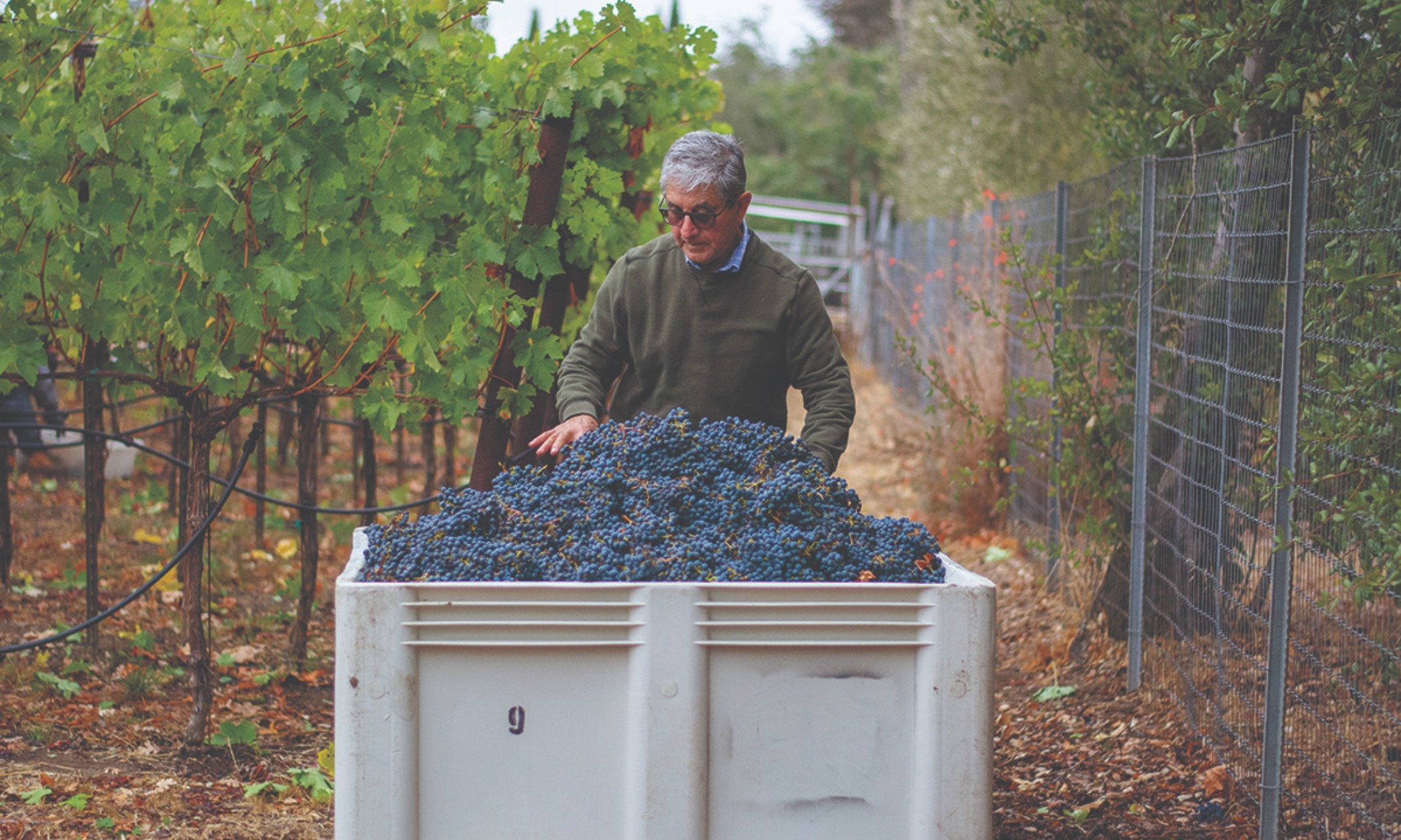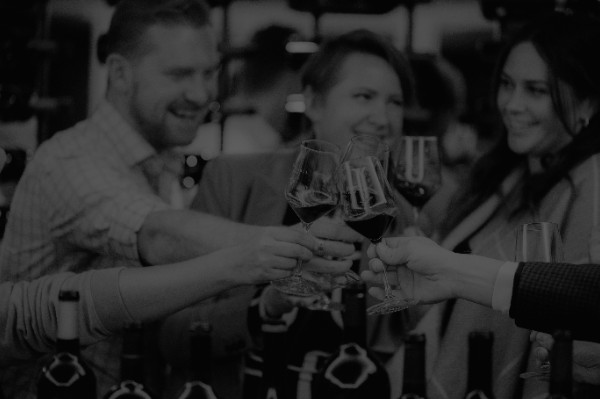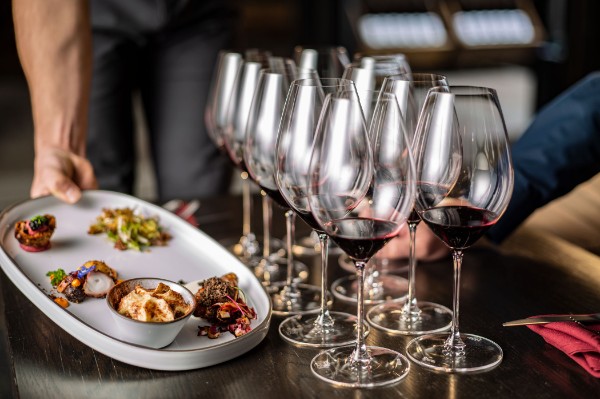Every year, thousands of people travel to Napa Valley and while aficionados often learn of Napa Valley’s rise to fame thanks to the Paris Tasting of 1976, visitors are rarely regaled with the history that came before.
From 1942 to 1964, changes in U.S. immigration laws paved the way for the Bracero Program, also known as the Mexican Farm Labor Program. Opening the door to a wave of immigrants, the United States allowed Mexicans to move to California and work on short-term labor contracts to help keep the economy afloat during World War II. With policies in place that legally permitted the United States to use Mexicanos for their labor, many Latinx people moved north in hopes of forming a better life and building community in an unfamiliar place.
The history and heritage of Latinos’ courageousness is a story of struggle and success. It’s no surprise that enterprise and entrepreneurship are at the heart of the Latinx wine story in Napa Valley. Although many have faced hardships such as racism and its ugly impacts, a pioneering group, through hard work and community, forged their field of dreams into fields of opportunity for both themselves and those who have followed.
Mario Bazán: Paying it Forward
Consider the story of Mario Bazán, the founder of Bazán Vineyard Management and Mario Bazán Cellars—one of four Latino-owned tasting rooms in downtown Napa. Mario first immigrated from Mexico City to the Bay Area with his uncle in search of a better life and greater opportunity. His career began working in the vineyards at Robert Mondavi. Mondavi understood early on that he could improve the quality of his wine by teaching others how to connect with what was happening in the vineyard to the cellar.
Throughout his 20 years with Mondavi, Mario showcased his abilities and talents in hopes of achieving upward mobility. Having attended school only until grade six, his limited education eventually became a roadblock to furthering his success. “Growing up we’re taught if you work hard, you will be rewarded. But you quickly learn that’s not always the case. For me, there was no more growth…so I started thinking about how other people were creating their own businesses,” says Bazán.
Afraid to leave a steady job, Mario’s journey changed during internal restructuring when he was let go. Forced to create his own solution, Mario looked into getting his license as a contractor. After all, latinos nunca se rindan (Latinos never give up.)
To support his family while he took a chance on himself, Mario started working at Stag’s Leap Wine Cellars. Transitioning to a much smaller winery, Mario balanced multiple roles, developing new understandings of the Napa Valley wine business, an experience that ultimately helped him focus on and grow his own vineyard management business. Gloria Bazán joined Mario in establishing the family-owned business when they married in 2005. At that time, they also purchased their family estate and started the development of their vineyard at the base of Atlas Peak. In 2007, Mario and Gloria’s twins, Antonio and Alexander, were born just as the inaugural 2005 vintage of Mario Bazán Cellars Cabernet was released.
Providing winemaking talent along the way was friend and winemaking partner Victoria Coleman— the first Black woman to enter and graduate from UC Davis’s Wine & Viticulture Program. This important sense of community and support continues to motivate Mario today and provides him with a renewal of hope for the incoming generation. “If I can help guide someone in life, that’s the reward for me, especially at my age.”
Martin Reyes: Forging Connections
Martin Reyes, the first Master of Wine of Mexican descent, expresses the importance of utilizing one’s platform to elevate other voices. “The past three years asked us to take a deeper look at wine’s main superpower—connectivity, connection. Our human connectivity was asked to take a long hard look. There are all these challenges. Racism. Bigotry,” Reyes explains.
Yet wine is also a great conduit for forging and strengthening connections—what comes out of relationships when the roots take hold and grow. “There’s a deep sense of gratitude to have been given a chance to be consequential,” he says. “I feel like I can use whatever small leverage I’ve got to change and move the narrative positively.”
Cinthya Cisneros: Honoring Heritage
Also moving the Latinx winemaking narrative forward is Cinthya Cisneros, proprietress of La Cheve Bakery and Brews in Napa. Stepping into the oldest building in Napa, it’s hard to ignore the heart of Latinx history and culture, as if you’ve landed at a small ranchito in Mexico, with the aroma and warm welcoming of abuelita’s cooking. The old adobe house is not only home to some of the greatest Mexican food in Napa Valley, but it was also once home to the Cayetano Juarez family, back when what would eventually become Napa was still part of Mexico.
Cinthya has created a space to not only honor the rich tapestry of Latino heritage, but to also showcase the different expressions of flavors and styles of wines made by Latino winemakers. “People come to La Cheve because they know who they’re supporting. These purchases, these dollars make a big difference. It’s beyond just drinking and dining. It’s where the money is going and who it is supporting. Latinos have been here forever and we’re making things happen.”
Oscar Llamas: Nurturing Relationships
Growing up as a migrant farmworker and traveling across several states from the age of six to 19 to pick fruit with his family, Oscar Llamas, proprietor of Llamas Family Wines, is an example of a lifetime of hard work and vision coming to fruition. Oscar’s partner in life and wine, Lola Llamas, recounts how “[Oscar’s] dad cut a plastic milk gallon jug in half and put a rope around it so Oscar could carry it around his neck and pick cherries. He’s been at it for a long time.”
What started off as a passion project with their first vintage in 2009 eventually grew as a living marker of their legacy. “I want there to be a legacy, for the Llamas family and our children,” notes Lola. “Because there are so many Llamas members working in the agricultural industry, it’s a way to keep our legacy alive.” Despite not having formal experience in winemaking, the powerful connections amongst the Latinx community have propelled them and others forward.
“When I think about who’s been really helpful— Rolando Herrera from Mi Sueño Winery comes to mind. He’s always been so kind and generous with his time and advice; someone we can call to let us pick his brain.” As a small producer with less than 400 cases, Lola Llamas acknowledges the difficulty many smaller producers face in the broader market and how critical it is to have support within the wine community. “Sometimes they don’t see past, ‘you’re small, we don’t know who you are,’ and it’s frustrating.”
Thus is the value of relationships and ability to connect—an opportunity to impact another’s vision and success and leave a legacy to positively contribute toward others in the Latinx community. Because for every voice that has risen in the conversation within the winemaking world, there are still others seeking to come into the fold.




